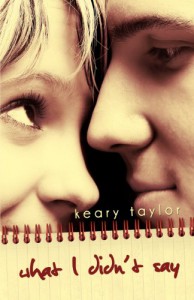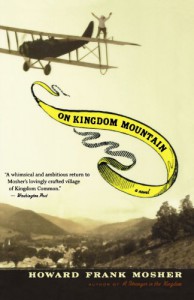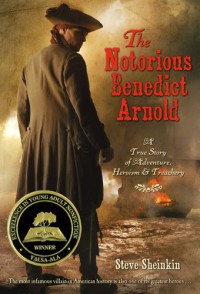Loves books and cats
Best things in life: books, beaches, cats, chocolate, sunsets, sleep

Cue the Halleluia chorus, I have finally finished this book. I had to abandon the audiobook and read it on my ereader. I just didn't like it though maybe I would have liked it better if it was about half the length. There was just so much meandering philosophical stuff, especially at the end that ultimately bored me. If a novel is short listed for the Man Booker, it is the kiss of death for me and my apparently plebian tastes. I would say more but I don't feel well enough today to sit and type much. This novel has some pretty rave reviews so I'm sure it is worth checking out, I just wasn't my thing.

I never knew this novel was written more or less in tandem with the movie screenplay. My edition has an forward by Arthur C. Clarke in which he describes how he and Stanley Kubrick took an idea from one of Clarke's stories and expanded it (quite a bit) and decided to write a screenplay. But they decided they needed a novel first to "let their imaginations soar" from which they would later derive the script. So Clarke wrote the novel, though at the end the novel and screenplay were being written simultaneously. Then Clarke was trying to finish the book while the moving was being shot. And he wouldn't publish the book until the movie was already out. So you would think they would be basically identical, but they aren't.
I haven't seen the movie in quite a long time, but I remember being very confused about the ape-man creatures at the beginning and not knowing what the hell is going on. Then you switch to the future and the space travel to Jupiter is commencing. Now having read the novel, I know what is going on the ape-men because it describes this in excruciating detail. We're talking 6 chapters. I need to watch the movie again, but all I'll say about the novel is that I didn't really enjoy it that much. I remember Hal (the computer) being such an enormous part of the movie, and he is important in the book but not as important as I would have thought. Of course the actions he takes when he feels threatened are similar, but I guess the computer's overall importance to the story is not what I thought it would be. That doesn't make the book bad in any way. I just wasn't as interested in the story line as I had hoped. It does explain lots that is confusing in the movie, so that's one good reason to read the novel. The ending of the movie is very weird and is explained in much more detail in the novel, but it is still weird and not necessarily satisfactory if you are looking for answers. I won't spoil it, but let's just say that I was hoping for more answers and it still leaves lots of room for discussion.
There was another thought which a scanning of those tiny electronic headlines often invoked. The more wonderful the means of communication, the more trivial, tawdry, or depressing its contents seemed to be. Accidents, crimes, natural and man-made disasters, threats of conflict, gloomy editorials - these still seemed to be the main concern of the millions of words being sprayed into the ether."
2001: A Space Odyssey by Arthur C. Clarke
 1
1
Reading progress update: I've listend 609 out of 883 minutes.

I went on vacation last week and thought I'd finish this book. I didn't listen to it at all. It's become the longest book ever for me.
 1
1

I understand why I got this as a freebie ebook on Amazon. It was very, very mediocre. Not bad but the editing wasn't great and it wasn't even self-published. A very typical YA romance really. Not bad at all but I am truly glad I didn't pay anything for it. I kind of swore off YA books for a while, but now I've read 2 this month. I had to read one to finish a trilogy and this one I read for something quick while I was on vacation. I think I'll go on another YA fast. I need to admit that I am not in the YA age group, and therefore, these novels don't truly do much for me.

 Slow moving but enjoyable until the end. Both of the last two books I've read had rushed endings that seemed as if the authors just didn't really know how to wind up the story in a satisfactory way, so they just rushed to an ending that pretty much sucks. I don't need happy endings, but it needs to work with the body of the book. As slow as this novel moved, the end was the equivalent of the last lap of the Indy 500 at the end of someone's hour long commute to work. For that I give this book only 3 stars.
Slow moving but enjoyable until the end. Both of the last two books I've read had rushed endings that seemed as if the authors just didn't really know how to wind up the story in a satisfactory way, so they just rushed to an ending that pretty much sucks. I don't need happy endings, but it needs to work with the body of the book. As slow as this novel moved, the end was the equivalent of the last lap of the Indy 500 at the end of someone's hour long commute to work. For that I give this book only 3 stars.
 1
1
Reading progress update: I've listend 415 out of 883 minutes.

I'm enjoying this very much, but it kind of drags periodically. Unlike other reviews I've read I think it drags during Nao's part of the story instead of Ruth's. I desperately want to know what happened to Nao, her father, and her great grandmother, but this is an audiobook and I only have limited times of the day to listen.
 1
1
A book vending machine in Orange, CA near the train station. How cool is that!!!!

Liked: lots of action that kept me interested and wanting to read to the end.
Hated: crappy story-line that does not make sense and way too many characters who behave completely out of character.
On the whole a 2 1/2 stars book: If I am honest, I liked it okay for about 2/3 of the book then the more I thought about it, the more I realized that there are too many parts of the story that don’t make sense. And the character issues and the rushed ending just killed it for me. See below for a more thorough analysis with a few spoilers.
(show spoiler)
J. K. Rowling "

I wish I could rave over the brilliance of this novel as many others have. I can’t give it bad marks because it was well written and full of emotion about the Vietnam war that is very painful and heartfelt. However it was just strange to keep reading references that O’Brien makes about stories that aren’t true that are really more true than the actual events. What??? Are the stories he relates true or even mostly true? Did he kill the slim young Vietnamese man or did he just witness it and it was so painful to him that it was like he killed him? It is just confusing. The stories are very good, it's just an issue for me that I want to know what was real and what is make believe.
I can't imagine the agony any young man had to go through when he received his draft notice. To go war or go to Canada as a draft dodger wasn't much of a choice. And one statement that O'Brien makes in this book really resonated with me in view of the past decade watching our young men and women die in Iraq and Afghanistan. He said "It was my view then, and still is, that you don't make war without knowing why. Knowledge, of course, is always imperfect, but it seemed to me that when a nation goes to war it must have reasonable confidence in the justice and imperative of its cause. You can't fix your mistakes. Once people are dead, you can't make them undead." Yes, exactly

For the first half of this book, the reader is treated to a depiction of Arnold that seems like he was a very misunderstood but likeable man. He seemed a true Patriot fighting against the British before the war even begins by joining in the Boston tea party and doing all he could to avoid the paying taxes he felt were unfair by smuggling goods into the country. And he joined the military to fight the British and was made an officer even though he knew nothing about military strategy. The second half of the book makes you see why he was not liked by many. The people from his hometown in Connecticut loved him, but they viewed him as a hero. Others saw the man who was rude and unethical. I ultimately didn’t find anything to admire about Benedict Arnold except for his bravery in the face of battle. Truthfully, he wasn’t so much brave as foolhardy. It turns out that he was a rather astute military tactician, and he certainly was a favorite of his soldiers. He never asked them to face dangers that he wasn’t willing to face himself, and even threw himself into the battle of Saratoga in which he was not supposed to be anywhere near the action.
Arnold was a glory-seeker just like many of the other top generals of the time. He wasn’t given as much credit by Congress as he deserved for the successes he had in battle. Because he was always looking for accolades, jealousy by his commanding officers kept them from giving him as much or any credit at all when they reported on the battles they led. Despite all of these commendable qualities as a brave man, he was not admirable in so many other ways. And he was personally not a very nice man.
Benedict Arnold was put in charge over Philadelphia by General George Washington in 1778 after the British abandoned their occupation of the city. Washington could not have picked a much worse candidate. Arnold had no political acumen, and Washington specifically stated that that is what would be required of the military leader in Philadelphia. There were all kinds of civilian toes not to be trod on that Arnold made no attempt to avoid. He disregarded civilian leaders as unimportant and made every attempt to better his personal situation with complete impunity. He made himself richer than he was before by taking advantage of his position, buying goods from stores he closed to the public, using transport vehicles for personal trade that were supposed to be used only for military purposes.
It is such an irony that he faced a court martial trial at the very time he was plotting to betray the American forces to the British. He received a reprimand because he had practiced poor judgment while being in charge of Philadelphia, but he was found innocent of any criminal charges. But receiving even a reprimand enraged him because he felt he should be found innocent of all charges. What gall this man had! It was by sheer bad luck that his plan to betray the American forces was found out before the plan could be implemented. And a British officer was hanged as a spy for participating in the plan while Arnold got away. That just makes me mad because it was Arnold was doing the whole thing for money, not because of his principles. Okay even if he had been doing it for his principles I would still be mad.
The book is very informative and interesting although it drags in places. I would definitely recommend it to learn about the life of Benedict Arnold, and you too can hate him as a traitor as many British and all Americans did at the time.
 1
1
 1
1
Margaret Atwood"









